Fedor Ushakov - the holy admiral
A native of Yaroslavl Province, Fedor Fedorovich Ushakov remained in stories The Russian empire was a brilliant naval commander, a devoted servant of his homeland and a righteous Christian. The future admiral was born two hundred and sixty-seven years ago in the distant 1745 year. His birthday on modern calculus falls on February 24. To this memorable date, we propose to recall all the merits of this brilliant naval commander, who did not lose a single vessel for the entire period of his leadership and did not surrender a single seaman.
The memory of this amazing person still lives in the Fatherland. Awards are named after him, magnificent sea vessels, and also an interesting film was made about such an amazing life of the admiral. An asteroid is named after Fedor Ushakov, and the Orthodox Church canonized him as the patron saint of the naval forces.
The father of the brilliant admiral was dismissed from service from the Life Guard with the rank of sergeant of the Preobrazhensky regiment and to the fleet had no relationship. Ushakov’s remarkable relative was his uncle Fedor Sanaksarsky, with whom he was often confused. However, in reality they are completely different personalities. Admiral Ushakov from his uncle inherited unlimited faith in God, as well as the ability to humbly endure all life changes, not even the most successful ones. The Ushakov family was distinguished by strict observance of Orthodox customs, and Fedor Fedorovich himself was characterized by a meek and modest man.
Ushakov spent his childhood and youth in his father's village, Burnakovo, and received his primary education at the Church of the Epiphany on the Island. The conditions of his upbringing were distinguished by a special austerity and modesty of life, since the family adhered to high moral principles and was not rich at all. In addition to Fedor Fedorovich, three more brothers grew up in the family: Semyon, Gavrila and Ivan. Daily prayer and regular fasting remained forever in the life of the admiral. However, despite the meek disposition and modesty, Fedor Fedorovich was distinguished by his bravery and already in his youth he went with the elder to the forest to hunt, including the bear.
As soon as the boy turned 16 years, he was sent to the Sea Szlachiet corps of cadets, where he distinguished himself by successes in the field of history and military sciences. Fedor Fedorovich graduated from St. Petersburg corps fourth in academic performance. In 1763, Ushakov became a midshipman, and a year later a corporal. Already in 1766, the young youth is a midshipman and with 1767 he embarks on his first voyage on a ship called Nargin. Acquaintance with the open sea on the way from Kronstadt to Arkhangelsk marked the beginning of Ushakov’s brilliant military career. Rounding Scandinavia, the young and inexperienced Fyodor Ushakov received the most valuable knowledge and comprehended the science of navigation. A flexible, sharp mind and good memory allowed him to become one of the best on the ship and earn the respect of his comrades.
In 1768, Ushakov served under the command of Captain Greig on the Three Hierarchs and, after sailing the Gulf of Finland, was sent under the command of Senyavin to the Azov fleet. It was under the command of Senyavin Fedor Fedorovich for the first time able to practice maneuvering and shooting. Basically, the task of the Azov flotilla was to protect water spaces and the coastal zone in order to prevent the landing of the enemy assault. After the Russian-Turkish war was over, the Russian Empire had the opportunity to deploy its fleet on the Black Sea. For the first time, Ushakov became the captain of the ships of the sailing "Hector" and then a bot called "Courier". Each new position allowed the future admiral to accumulate invaluable experience, which was so useful to him in the future. Walked Ushakov and on the improved ship "Morea", as well as on the ship "Modon". Each new ship became the next stage of honing the skills of the young commander, and the tasks were performed at the highest level.
In 1780, the young Ushakov opens up the prospect of a successful secular career and is given the opportunity to approach the mercies of the imperial court. He is appointed captain of the imperial yacht. However, such an appointment was perceived by Fedor Fedorovich without much enthusiasm, and after a short period of time he was sent to the Sukhotin squadron. In the 1776 year, being in the rank of lieutenant commander, Ushakov commanded the "Northern Eagle", and then the frigate "St. Paul." When serving in the Sukhotin squadron, Fedor Fedorovich gains additional experience and deserves the respect of commanders for their courage and love of their subordinates. It must be said that throughout the entire service in the navy of the empire, Ushakov did not change his way of life and strictly adhered to Orthodox canons. It was a caring, but fair and stern commander. What distinguished the future admiral was that he never regretted himself, and did not throw the subordinates ashore and did not throw into rash enterprises. Each action associated with a risk to people was measured and calculated to the smallest detail.
Fedor Fedorovich introduced his significant contribution to the construction of impregnable Sevastopol. According to the testimony of his contemporaries, Ushakov so selflessly joined in the work that sometimes with a lack of funds he transferred his own salary and savings to pay for certain works. Upon arrival at the fortress, Catherine the Great noted Ushakov among the most distinguished officers.
However, a decisive rise in the career ladder began with the entry into the war with Turkey from 1787 to 1789. In the battle of Snake Island (otherwise called Fidonisi) in 1787, thanks to the resourceful actions of 4's frigates commanded by Ushakov, Turkish ships, superior Russian forces several times, suffered a crushing defeat and were forced to flee. The tactics of the talented captain of the brigadier rank were quite simple: do not let the ring around the Russian ships; impose battle on the Turkish flagship, appointed to lead the entire course of the attack. The ability to unravel the intentions of the enemy only on certain grounds of construction and maneuvers, instantly make a competent decision, and also amazing courage and abandonment of standard methods and methods became a special feature that distinguished Ushakov from a number of other officers.
However, the brilliant actions of the promising Ushakov became the basis for the conflict with the commander of Voinovich. Fyodor Fedorovich's career was saved by the timely intervention of Potemkin. In his address to the Empress, Voinovich was completely incapable of organizing successful operations of the Black Sea Fleet, while at the same time he focused on the merits of promising Ushakov. Potemkin expressed his admiration for the sharpness of mind and the abilities of Fedor Fedorovich, comparing it with the unlucky Voinovich. The result was not long in coming, already in 1789 he was given the rank of Rear Admiral.
Personal relations Potemkin and Ushakov evolved very well. Two talented and devoted commanders of Russia understood and respected each other. Fyodor Fedorovich, due to his active nature, could not tolerate various kinds of bureaucratic delays and administrative routine, so he was released from its execution by order of Potemkin.
After the defeat at Fidonisi, Turkish commanders were instructed to take revenge. The ships of Ushak Pasha, and that is how the Turks called Ushakov, was ordered to be defeated. However, a series of clashes with the gaining strength of the Russian fleet showed Ushakov's superiority. Even the superior opponent could not stand against the lightning fast and unconventional decisions of the commander in chief. The advantage of rear admiral was the rejection of habitual and stereotypical actions and moves. The Turks could not foresee the plans of Fedor Fedorovich and inevitably suffered a defeat. The name Ushak Pasha rattled not only within Russia, Turkish commanders were frankly afraid of it. Even excellence in gunshot weapons could not save the enemy from defeat, since Ushakov skillfully fought at very close ranges and used all possible artillery and guns.
In the 1790 year, at the meeting of the Russian fleet, speaking in the direction of Sevastopol, with the stronger and equipped ships of the Kapudan-Pasha Gussein, the victory was won again. This clash can be called a fight very arbitrarily, because when the Ushakov forces were discovered, the Turks quickly and unorganized began to retreat. Fedor Fedorovich had only to go on the offensive and smash the enemy ships. 1791 the year was marked by the brilliant victory of the Russians at the cape named Kaliakria, after which peace was concluded on favorable terms for the Empire, and the successful commander was given the rank of vice admiral.
After the death of the empress, Ushakov was appointed commander-in-chief of the Mediterranean fleet. Here Fedor Fedorovich, who became hardly a world celebrity, was entrusted with the promotion of the anti-French coalition. Former opponents became allies. The Turkish government instructed its commanders not only to obey a talented commander, but also to diligently learn from him.
Good luck did not leave Ushakov in the Mediterranean. For a short time, the Russian forces, together with the Turkish fleet, liberated the Ionian Islands from the French presence. During the actions, not only the vice admiral's leadership skills, but also diplomatic talent were revealed. For example, the impregnable fortress of Corfu was helped by the locals to take over the commander-in-chief, whom he addressed on the eve of the attack. At 1799, the flotilla successfully occupied cities on the Italian coast, while Suvorov scored brilliant victories on land. Thanks to Suvorov and Ushakov, the authority of the Russian military forces soared to an unattainable height. In 1799, Fedor Fedorovich was finally given the rank of admiral. However, already in 1800 the Russian ships were recalled to Sevastopol, due to the deterioration of relations between the allies.
When Alexander I came to power, the value of the fleet fell, since the new emperor did not consider it significant for the country in this period. In 1806, Ushakov was recalled from the service and his knowledge, experience and abilities ceased to be used. Fedor Fedorovich adequately accepted this fact. At all times, his service was a belief in God and high moral principles guided the behavior of the admiral. Graciousness, modesty and self-sacrifice instilled from youth, together with devotion to the Fatherland and the sovereign, allowed Ushakov to accept such a turn of fate calmly. Back in 1804, he wrote a report on his service for the good of the Motherland, in which it was said that during the entire period of his command the enemy could not sink any of the ships entrusted to him, and also take prisoners. The brilliant career of an amazing person was over.
A huge number of orders, awards, titles, memorable gifts - all this was in possession of the famous commander. Despite the opportunity to remain in a secular society, where he was respected and appreciated by all, and the young men simply bowed to him, Ushakov preferred to retire in his village. His life in old age was more like a monastic. Fedor Fedorovich was never married, and he spent all his savings on charity. He made large contributions for the benefit of the church, participated in the fate of the unfortunate and disadvantaged, took care of orphaned nephews. The terrible admiral of the Russian fleet lived in modesty and even in poverty, since he considered it worthy of a real Christian. He prayed a lot and lived for a long time in the monastery, idle for hours in the church for worship services.
In 1812, Fedor Fedorovich was elected commander of the militia assembled in the Tambov province to resist Napoleon's troops, but Ushakov could not accept this honor, because he was already weak and sick. However, righteous and selfless, the admiral organized a hospital for the wounded, and also donated large sums, both for the militia and for other needs. In 2001, the Orthodox Church canonized Ushakov and ranked him among the righteous, which he certainly deserved.
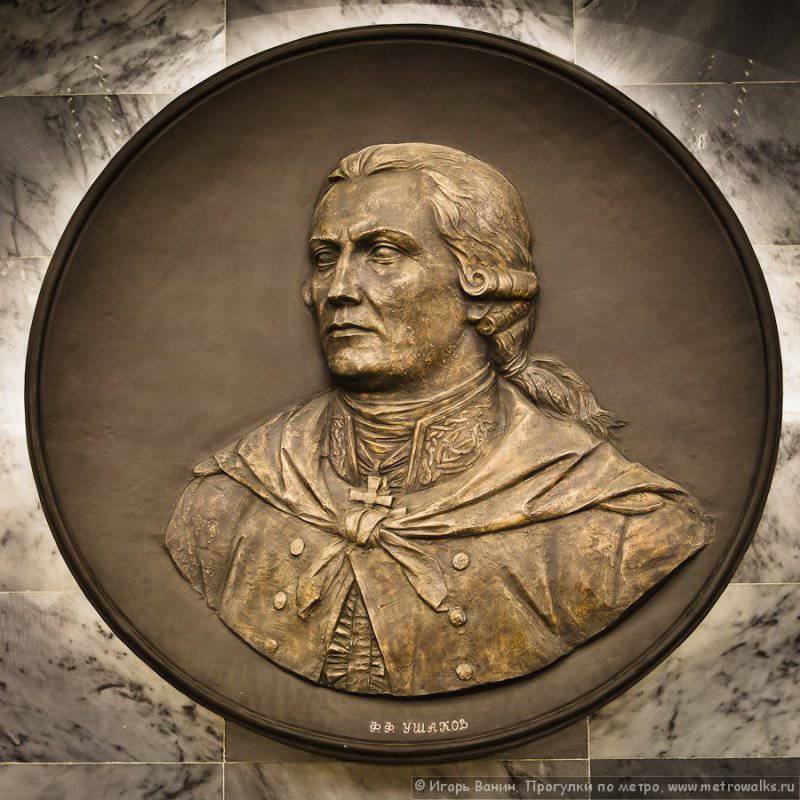
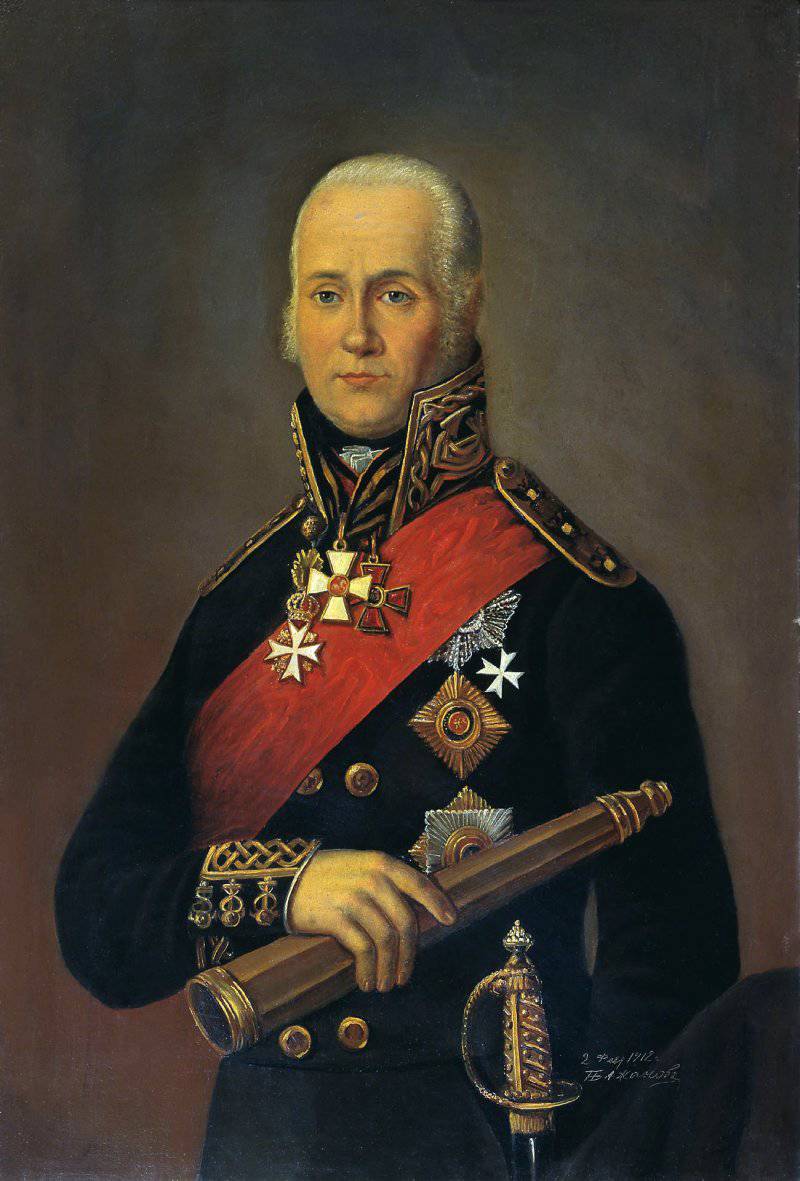
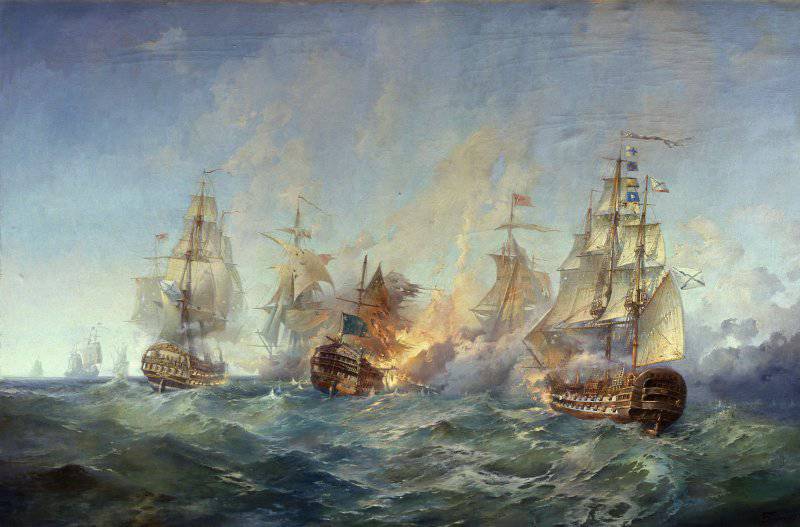
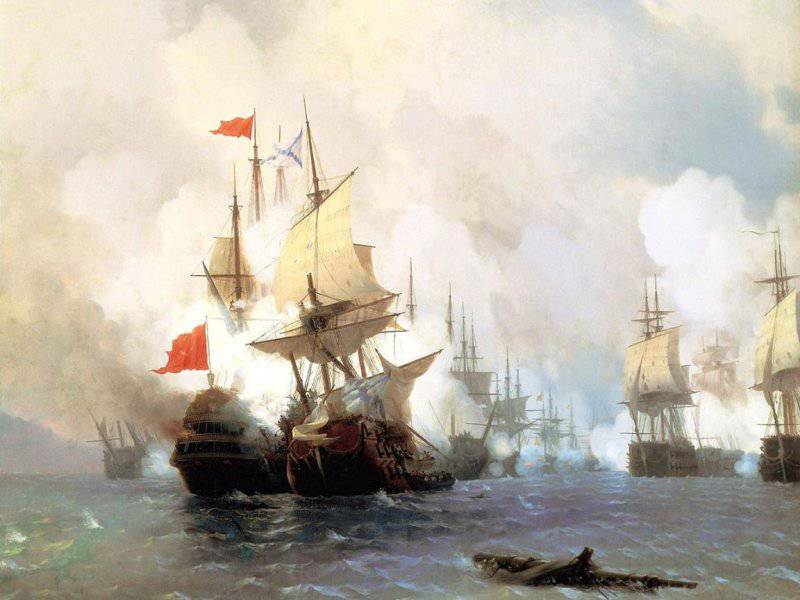
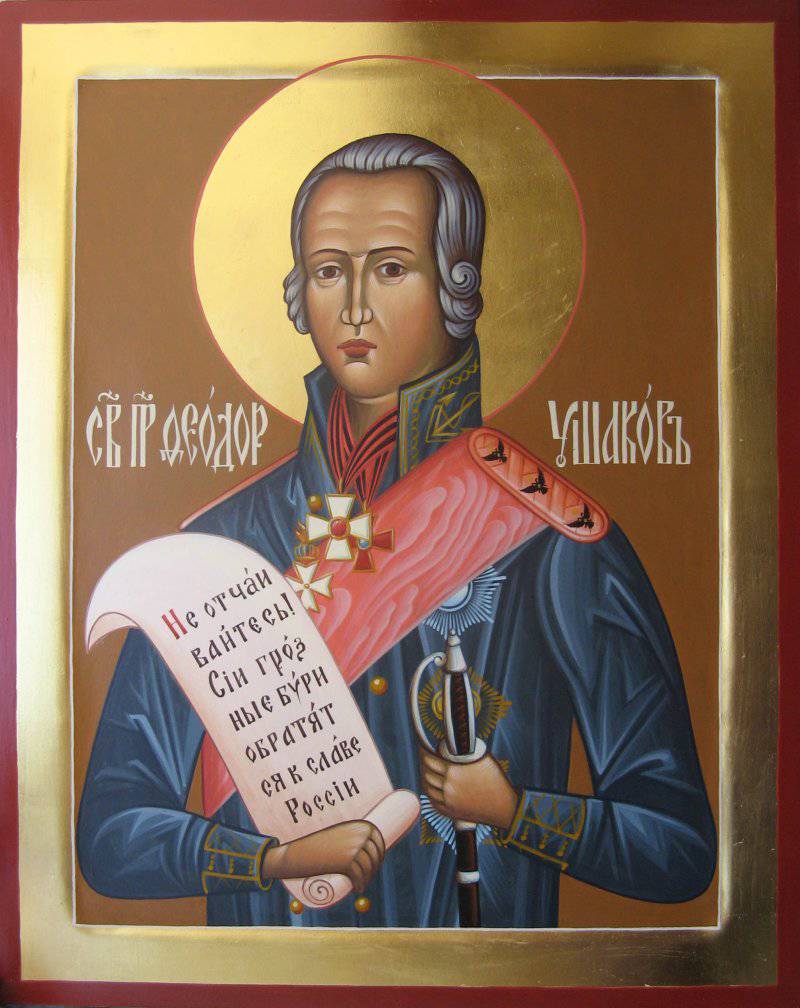
Information